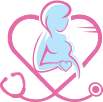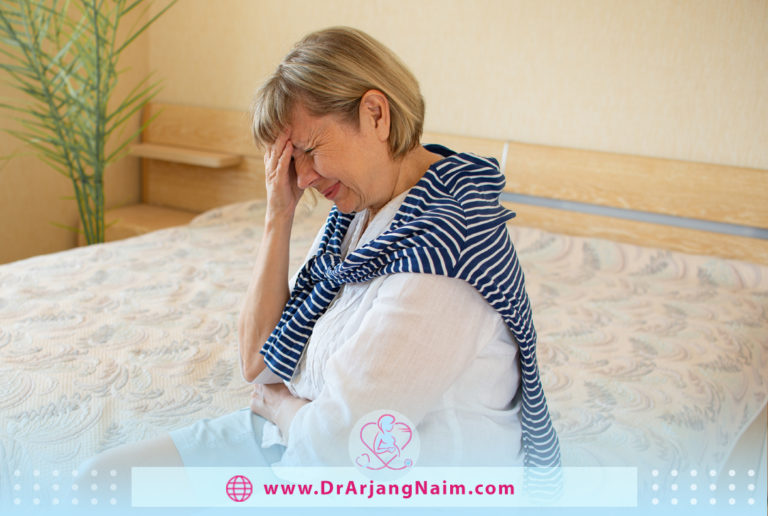Menopause marks the end of a woman’s fertile years. This is a natural process that involves hormonal and physiological changes. This period can be challenging for some women, especially if hormonal changes lead to symptoms such as hot flashes and anxiety. Some women are more relaxed during this time because they do not need to think about menstruation and pregnancy control. Usually, all women experience this period in their late 40s or early 50s.
It can cause many changes in the body. These symptoms result from decreased production of estrogen and progesterone in the ovaries. Symptoms may include hot flashes, weight gain, or vaginal dryness.
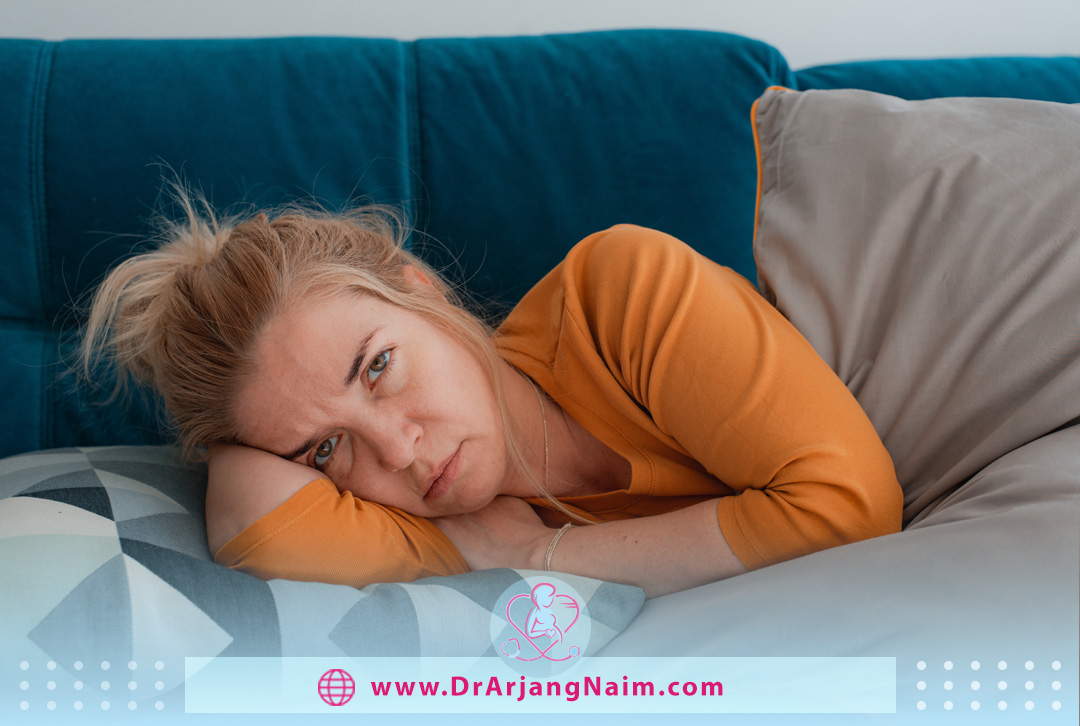
Symptoms of menopause
In the months or years leading up to menopause, the following signs and symptoms may occur:
- Sleep problems
- Mood changes
- Irregular periods
- Vaginal dryness
- Hot flashes
- Chills
- Night sweats
- Slowed metabolism and weight gain
- Dry skin and thinning hair
Symptoms, including changes in menstruation, can vary among women. Menstrual irregularities are more likely to occur before menstruation ends.
Complications
After menopause, the risk of certain diseases increases.
Heart and blood vessel disease
When estrogen levels decrease, the risk of cardiovascular disease increases; therefore, women need to exercise regularly, maintain a normal weight and eat a healthy diet.
Osteoporosis
Menopause causes bones to become brittle and weak. In the first few years after it, bone density may decrease rapidly, and the risk of osteoporosis may increase. Postmenopausal women with osteoporosis are particularly prone to fractures of the spine, pelvis, and wrists.
Urinary incontinence
Vaginal and urethral tissues lose their elasticity, and frequent, sudden and intense cravings for urination, followed by an involuntary loss of urine, may occur in women during this period. Strengthening the pelvic floor muscles with Kegel exercises and the use of topical vaginal estrogen helps relieve the symptoms of incontinence. Hormone therapy may also be an effective treatment option for menopausal urinary tract changes and vaginal changes.
Sexual function
Vaginal dryness due to decreased moisture production and loss of elasticity can cause discomfort and slight bleeding during sex, which results in decreased sexual desire. Water-based vaginal moisturizers and lubricants can help.
Weight gain
Many women gain weight during menopause and after it because their metabolism slows down. For this reason, women need to eat less and exercise more during this period to avoid gaining weight.
Essential menopause facts
Natural menopause (not caused by surgery or any other disease) is a natural part of aging. It is defined as a full year without menstrual bleeding, surgery, or medical condition that may artificially stop the bleeding, such as hormonal control, an overactive thyroid, high prolactin, radiation therapy, or ovarian resection. The symptoms that women experience at each stage of menopause (perimenopause, menopause, and postmenopause) are all part of the body’s adaptation to changes during this period.
1. Menopause is not sudden
It does not happen suddenly for most people. This is a process, and there is no definite point in time. By the age of 30 or 40, estrogen and progesterone levels begin to decline, and menopause begins. Menstruation may become less regular until it stops completely.
Menopause usually begins 12 months after the last menstrual period. According to the North American Menopause Association, this is usually between 40 and 58 years, with an average of 51 years. It begins almost immediately if a person has surgery to remove their ovaries. Some medical treatments, such as chemotherapy, can cause menopause. In some cases, this is temporary, and menstruation will start again after the end of treatment.
2. Most people experience symptoms
Menopause is not a disease, but the hormonal changes that occur can trigger the symptoms. These symptoms can range from mild to severe, which in some cases can lead to discomfort. Treatment can help manage symptoms.
3. Perimenopause can start in the 30s
Perimenopause is the stage before menopause. This stage can last 4-8 years. In the perimenopause period, estrogen and progesterone levels gradually decrease. Menstruation becomes more irregular, and menopausal symptoms may appear. These symptoms include:
- Hot flashes
- Night sweats
- Vaginal dryness
4. Sex after menopause
Some people think that menopause means that they are less attractive or cannot enjoy a sex life. However, as the need to think about menstruation and pregnancy decreases, it can give new meaning to sex. Tips for maintaining an active sex life include:
- Lubricants and other ways to reduce vaginal dryness
- Exercise and follow a healthy diet to stay fit and healthy
- Spending intimate time together in asexual ways
- Discover new ways of arousing your partner
- See a therapist
- Try pelvic floor therapy
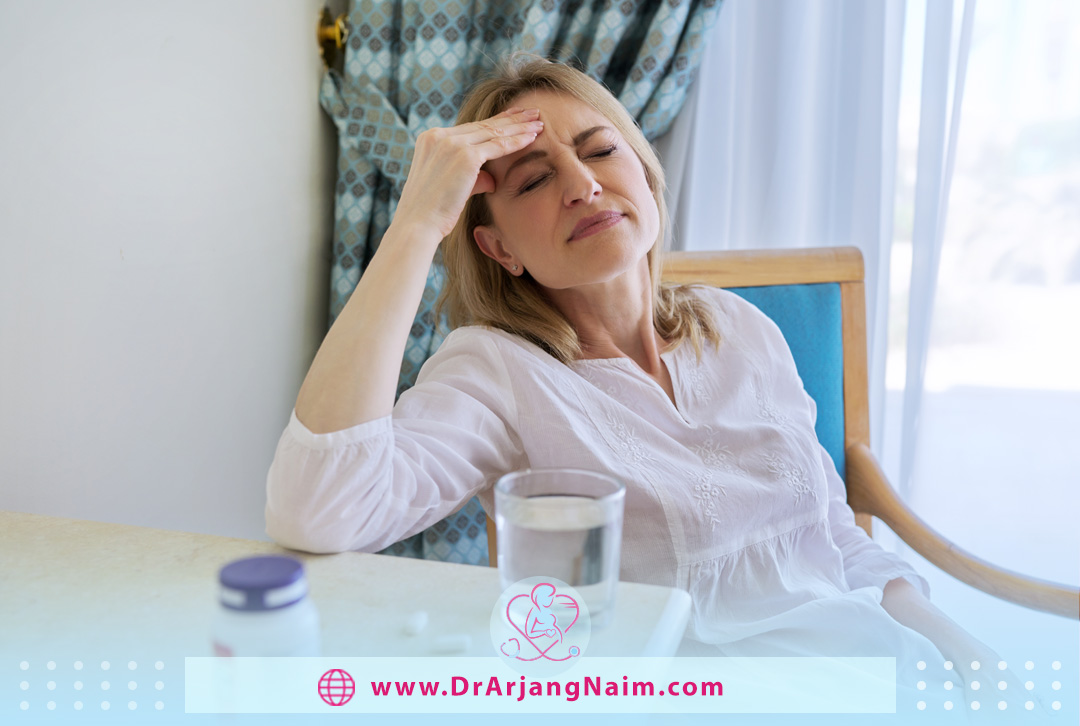
5. Treatment is available
The doctor may prescribe medication if the symptoms interfere with daily life. Treatment methods include:
- Hormone treatment: This treatment can solve many problems by balancing hormones. However, it may not be suitable for people at risk for blood clots, stroke, breast cancer, dementia, and gallbladder disease.
- Antidepressants: Low doses of paroxetine may help treat hot flashes.
- Sexual well-being: Lubricants can help relieve vaginal dryness. If natural lubricants and therapies do not work, the doctor may prescribe vaginal hormones as a ring, cream, or pill for direct use in the vagina.
- Preventing osteoporosis: The doctor may recommend regular bone density assessments to monitor bone strength. If the results show that bones are weakening, the doctor may prescribe vitamin D supplements and make recommendations about diet and exercise to reduce the risk of osteoporosis.
- Mood changes, anxiety, and depression: Hormone therapy may help, or the doctor may prescribe medication. Counseling and relaxation can help manage stress and depression.
- Sleep problems: Various factors can lead to sleep problems at this time. Adequate exercise, limiting alcohol , coffee consumption, and maintaining a healthy sleep schedule can help.
6. The body still produces hormones
The body does not stop producing estrogen after menopause. Estrogen plays a role in various essential functions, and the body still needs some estrogen. Under these conditions, estrogen is not produced by the ovaries. Instead, the adrenal glands produce hormones called androgens, and aromatase, (another hormone), converts them to estrogen.
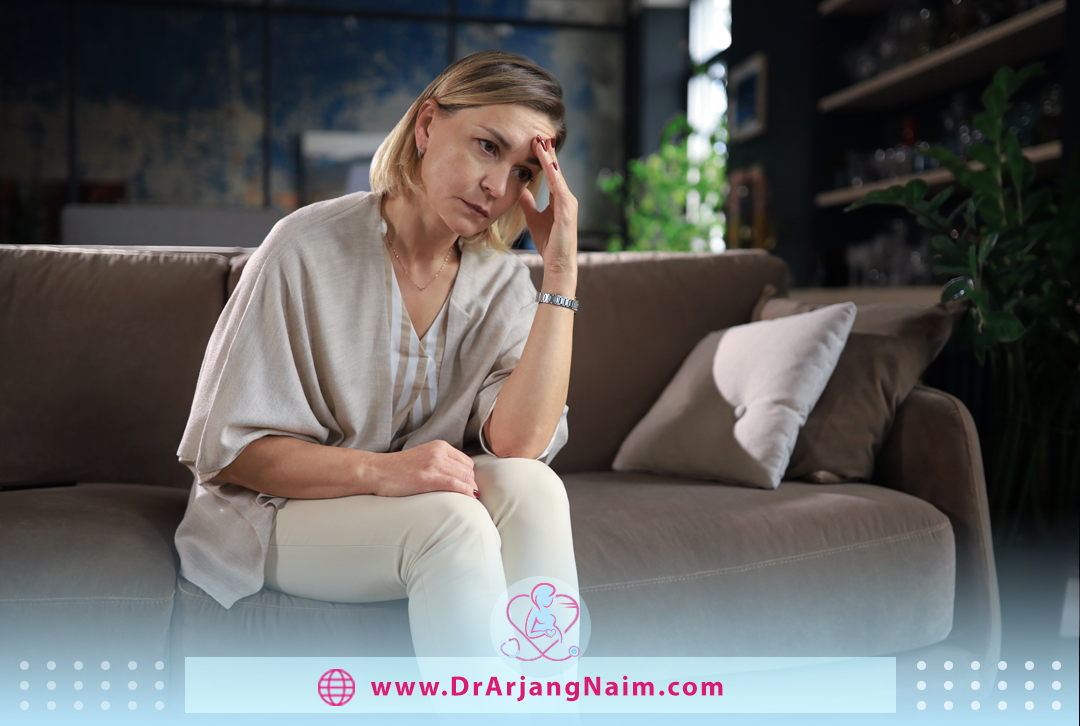
7. Menopause and stress
Many women have difficulty concentrating and remembering things during menopause. Stress is an important factor in this condition. Causes of stress may include the following:
- The impact of physical changes
- Domestic, professional, and other pressures
- Concerns about aging
Ways to manage stress are:
- Getting regular exercise
- Joining a relaxation or yoga class
- Staying in touch with friends and family
- Finding a balance between responsibilities and personal interests
8. Pregnancy is still possible
Menopause marks the end of a woman’s fertile years, but it can still occur during or after pregnancy. As long as menstruation continues, a person can become pregnant. However, as menopause approaches, the chances of getting pregnant decrease.
Advances in reproductive technology make it possible to get pregnant after menopause. This is usually done with donated eggs or embryos that the person has preserved early in life. Depending on the age and health status of the person at the time of fertilization, there may be a risk of miscarriage, premature birth, and risks to the woman’s health.
9. Difference between perimenopause and menopause
Perimenopause refers to the period just before the onset of menopause. During the perimenopause period, hormone production from the ovaries begins to decline. Symptoms may include hot flashes, which are usually associated with menopause. The menstrual cycle may become irregular, but it does not stop in the perimenopause stage.
10. Periods can come back
This is another thing that women are very surprised about. They think they are no longer likely to have periods when they do not have three or four periods. But, in many cases, periods may come back. Something may stimulate the hormones a little, and eventually, a period may occur. Changes in lifestyle, diet, and exercise are some of the changes that can cause a period to return. Also, the return of menstruation may cause emotional distress due to a shock.
Therefore, many situations can trigger a period. However, it is very important that if a woman does not have a period for six months or more and her period returns, she is checked by a gynecologist to ensure nothing else has happened.
The bottom line
Menopause affects a person’s health and well-being, but it is not a disease and does not mean that the body is disabled or aging. Menopause is a natural part of a woman’s life cycle. This is when estrogen and progesterone levels drop. After it, the risk of certain conditions such as osteoporosis or cardiovascular disease may increase. A healthy diet, adequate physical activity, and weight maintenance can help manage symptoms.
You should contact your doctor if you experience any adverse symptoms that affect your ability or if you notice anything unusual that may require careful examination. Many treatment options help with symptoms, such as hot flashes. Dr. Arjang Naim MD can help you with this.
How long does menopause last?
Menopausal symptoms can begin months or even years before complete menopause. They usually last about four years after the last menstrual period, although some women ‘s symptoms last longer. It usually occurs between the ages of 45 and 55, but it is tough to predict when it will occur in a person.
What are the three stages of menopause?
Menopausal stages include:
- Perimenopause: Time leads to menopause. Describes when hormones begin to decline and menstrual cycles become irregular.
- Menopause occurs when the production of hormones that cause menstruation stops and menstruation does not occur for 12 consecutive months.
- Postmenopause: During this period, a person is in menopause for the rest of his life. People after menopause are at risk for certain diseases such as osteoporosis and heart disease
Does menopause age the face?
The body stops producing collagen, some fat is lost under the skin, and the skin’s elasticity is reduced. This, along with the dryness caused by hormonal changes, can cause sagging, especially around the neck, jawline, and cheeks, and the formation of lines and wrinkles.
Are there any risks to hormone therapy?
Like many prescription drugs, hormone therapy has its risks. Some of the known health risks are:
- Endometrial cancer
- Gallstones and gallbladder issues
- Blood clots
- Deep vein thrombosis
- Pulmonary embolism
- Stroke
What are non-hormonal therapies?
Although hormone therapy is a very effective way to relieve the symptoms of menopause, it is not a complete cure for everyone. Non-hormonal therapies, including changes in diet and lifestyle, can help. These treatments are often good options for people with other medical conditions or who have recently been treated for breast cancer. The main non-hormonal therapies include:
- Changing your diet
- Avoiding triggers to hot flashes
- Exercising
- Joining support groups
- Prescription medications
References:
https://www.medicalnewstoday.com/articles/317765
https://www.healthline.com/health/menopause/menopause-facts
http://www.idph.state.il.us/about/womenshealth/factsheets/meno.htm
https://www.msdmanuals.com/home/quick-facts-women-s-health-issues/menopause/menopause
https://www.intimina.com/blog/menopause-facts/
https://www.mayoclinic.org/diseases-conditions/menopause/symptoms-causes/syc-20353397
